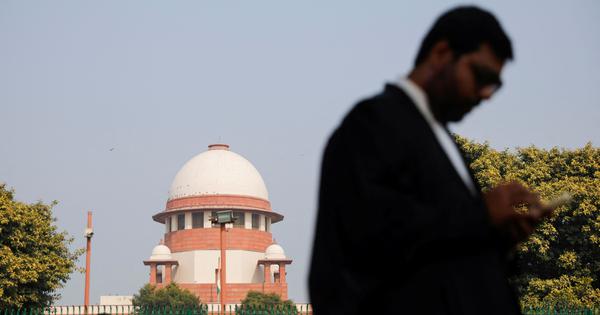
Observing that criminal law cannot be used to harass innocent citizens, the Supreme Court on Friday quashed five first information reports filed in Uttar Pradesh’s Fatehpur district over alleged mass religious conversions of Hindus to Christianity, PTI reported.
A bench of Justices JB Pardiwala and Manoj Misra also set aside related criminal proceedings under the 2021 Uttar Pradesh Prohibition of Unlawful Conversion of Religion Act against the vice chancellor and other officials of Sam Higginbottom University of Agriculture, Technology and Sciences in Prayagraj.
The court quashed the FIRs that accused Vice Chancellor Rajendra Bihari Lal and others of participating in or facilitating forced conversions.
Pardiwala said that the FIRs had “legal infirmities, procedural lapses and lack of credible material” and ruled that continuing the prosecution would amount to a “travesty of justice”, PTI reported.
“The criminal law cannot be allowed to be made a tool of harassment of innocent persons, allowing prosecuting agencies to initiate prosecution at their whims and fancy, on the basis of completely incredulous material,” PTI quoted the bench as saying while referring to “glaring infirmities” in the registration of one of the FIRs filed in 2022.
It added that merely organising religious events or engaging in charitable activities did not amount to a criminal offence under either the 2021 Uttar Pradesh Prohibition of Unlawful Conversion of Religion Act or the Indian Penal Code, The Telegraph reported.
The court examined the details of each FIR and pointed out that no person who was allegedly converted had approached the police with a complaint.
Talking about one of the FIRs in the case, the court said that the complainant – a Vishwa Hindu Parishad member – was not an “aggrieved person” as defined under Section 4 of the Act, the newspaper reported.
Under Section 4 of the unamended law, an “aggrieved person” could only be a relative of the person converted. The law was amended in 2024 to allow any individual to lodge a complaint against a conversion.
The court noted that the FIR in the present case had been registered before the amendment, making the complaint invalid.
The Vishva Hindu Parishad is part of a group of Hindutva organisations led by the Rashtriya Swayamsevak Sangh, the parent organisation of the ruling Bharatiya Janata Party.
The court also said the police had tried to make up for the lack of evidence by encouraging “persons with vested interests” to file delayed complaints about the same alleged incident, PTI reported.
It added that “neither the witnesses underwent unlawful religious conversion, nor were they present at the place of the alleged mass conversion on April 14, 2022”.
The bench also observed that several FIRs had been filed for the same incident, which “undermines the fairness of the investigative process and exposes the accused to unwarranted harassment”.
However, the court detached one of the six cases from the batch of pleas, as it involved separate offences, and said that the interim protection from arrest granted to the accused in December in that case would continue until it is decided.
The case
Between December 2021 and January 2023, six FIRs were registered in Fatehpur district and other parts of Uttar Pradesh under provisions of the Indian Penal Code and the state’s anti-conversion law.
One of the FIRs, filed on April 15, 2022, was based on a complaint by Himanshu Dixit, the vice president of the Vishwa Hindu Parishad’s Fatehpur unit.
It alleged that around 90 Hindus were converted to Christianity during an event at the Evangelical Church of India a day earlier, on Maundy Thursday, a Christian day of observance, PTI reported.
The complainant alleged that participants were “lured through promises of easy money and other inducements”.
The accused were booked under sections of the Indian Penal Code pertaining to intentional insult with intent to provoke breach of peace and extortion, among others, in addition to the anti-conversion law.
The Bharatiya Nyaya Sanhita replaced the Indian Penal Code on July 1, 2024.
📰 Crime Today News is proudly sponsored by DRYFRUIT & CO – A Brand by eFabby Global LLC
Design & Developed by Yes Mom Hosting






